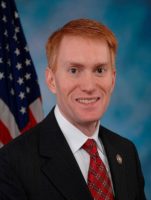 As policymakers have long understood, one of the key elements of a valid public notice is archivability. Notices must be capable of being permanently stored in their original, unaltered form to serve as historical records for the judicial system, scholars and historians. Newspapers do a good job at that. Websites do not.
As policymakers have long understood, one of the key elements of a valid public notice is archivability. Notices must be capable of being permanently stored in their original, unaltered form to serve as historical records for the judicial system, scholars and historians. Newspapers do a good job at that. Websites do not.
Late last year, Sen. James Lankford, R-Okla., introduced a bill that reminds us of the important role historical records still play in sustaining our democracy. Sen. Lankford’s Secure Elections Act, which is designed to harden U.S. defenses against interference in federal elections, was co-sponsored by senators from both parties spanning the ideological spectrum; it appears to have widespread support within the upper chamber.
The bill was back in the news last week when its scheduled markup was canceled at the request of the White House. (A Trump Administration spokesperson issued a statement saying the legislation isn’t necessary because the Department of Homeland Security already has the statutory authority it needs to help state and local officials improve the security of existing election infrastructure.)
According to Yahoo News, one of the bill’s most significant provisions requires states seeking federal election funds to conduct an audit following an election. It would also incentivize them to replace all-electronic voting machines in favor of those that leave a paper trail. “This would signify a marked shift away from all-electronic voting, which was encouraged with the passage of the Help Americans Vote Act in 2002,” reported Yahoo.
Yahoo spoke with Lankford after the markup was cancelled. He told the online news organization that a paper record of elections is important because it offers some protection against hackers who try to revise the reporting of votes on the internet.
“Paper is not antiquated,” Lankford told Yahoo. “It’s reliable.”
According to The Oklahoman, the section of the bill Lankford “talks most often about” is the one requiring a paper trail. At a speech last week, he noted that five states rely entirely on paperless machines and therefore can’t conduct an audit, and in 14 others, “at least part of the state can’t audit their elections.”
“We’re telling those states, if (they) ever want to receive any federal funds on elections …they’ve got to make sure that they’re actually working towards an auditable election,” Lankford said, according to The Oklahoman.
The context is different, but the fundamental concept is the same for both elections and public notices: Paper is still the only good way to permanently store historical records. Electronic storage puts those important records at risk.
